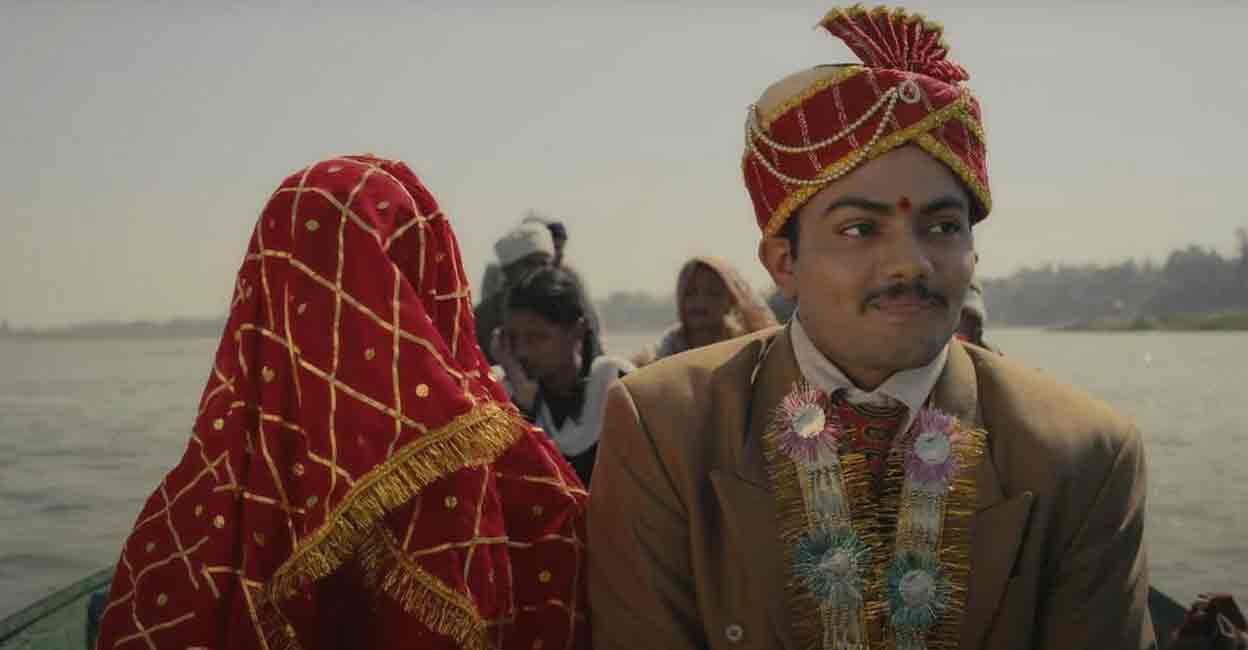‘Laapataa Ladies’ vs ‘Burqa City’: Amid plagiarism debate, here’s our take on both films

Mail This Article
Weddings are often grand affairs across cultures, but in India, they are especially chaotic—partly because marriage is not merely a private union, but a deeply entrenched social institution woven into the fabric of society. And it has long served as a muse for writers and filmmakers alike.
‘Laapataa Ladies’ explores the mayhem that ensues when a family realises that their son has accidentally ‘misplaced’ his bride and brought home another woman, while someone else's wife returns home with the husband from the marketplace in 'Burqa City'. While this theme is central to ‘Laapataa Ladies’, it is not entirely new. Several earlier works have touched upon mistaken identities, some reportedly inspired by Rabindranath Tagore’s ‘Noukadubi’, which revolves around a woman who is mistakenly taken to the protagonist’s home after a boat accident.
‘Grihapravesham’, a Malayalam film directed by S Balakrishnan and featuring Jagathy and Rekha in the lead, was based on a real incident in which two brides were swapped during a mass wedding in Guruvayur. A Chinese drama available on YouTube also depicts a similar mix-up, involving two women—arch-enemies—who end up married to the wrong men.
Film and television director Anant Mahadevan was the first to accuse the makers of ‘Laapataa Ladies’ of plagiarism, claiming that the Kiran Rao directorial is a copy of his telefilm ‘Ghoonghat Ke Pat Khol’, in which two veiled women board a train and end up in different homes. The similarities, however, largely end there. While Mahadevan’s Doordarshan telefilm explores how the women come to terms with their circumstances and fall in love with their new partners, ‘Laapataa Ladies’ takes a more layered approach, focusing on female agency and social critique.

In ‘Burqa City’, a short film set in the Middle East, a man takes his burqa-clad wife to a supermarket but ends up bringing home the wrong woman after a misunderstanding. The burqa in ‘Burqa City’ is mirrored by the ghoonghat (a veil worn by married women in parts of North India) in ‘Laapataa Ladies’.
One particular scene from ‘Laapataa Ladies’—in which Deepak Kumar (Sparsh Shrivastava) shows a wedding photograph to SI Shyam Manohar (Ravi Kishan), only for the latter to find the bride’s face fully veiled—bears a striking resemblance to a moment in ‘Burqa City’. In the latter, a man approaches a police station to file a missing persons report, only for the officer to break into laughter upon seeing a photo of the fully covered woman.
However, while ‘Burqa City’ plays the moment for satire, with the officer mocking the absurdity of the situation, ‘Laapataa Ladies’ offers a subtler take. The police officer maintains a straight face, even as he tries to grasp the gravity of the scenario.
Several Indian films have critiqued the symbolism of veils and burqas. In ‘Jaya Jaya Jaya Hey’, for instance, a burqa-clad woman walks past Rajesh (Basil Joseph) and his friend as they discuss his problematic behaviour. When Rajesh questions the woman’s identity, it’s a tongue-in-cheek nod to the anonymity imposed by such coverings. So, is it fair to say that ‘Laapataa Ladies’ was heavily inspired by ‘Burqa City’? The resemblances are there, but the argument is debatable. Each film navigates its own path, shaped by distinct socio-political backdrops and cultural commentaries.
Unlike ‘Ghoonghat Ke Pat Khol’, both ‘Laapataa Ladies’ and ‘Burqa City’ double up as social critiques—highlighting the subjugation of women and the absurdities of patriarchal traditions. At the heart of both is a love story: one that portrays men willing to go to great lengths to reclaim the women they care about.
‘Burqa City’, directed by Fabrice Bracq, is a full-blown spoof, taking aim at the rigid patriarchies and erasure of women’s identities in the Middle East. ‘Laapataa Ladies’, in contrast, is more heartfelt. It explores how two women swapped in a fateful train journey come to terms with their circumstances and assert their agency.
Each of the women in Kiran Rao’s film embarks on her own path of empowerment. Phool, innocent and sheltered, survives her ordeal and reunites with her husband Deepak. Jaya, street-smart and ambitious, uses the mix-up to escape her abusive marriage and pursue education. Manju Mai (Chhaya Kadam) emerges as the moral centre of the story, guiding Phool towards self-awareness. Both films end on an optimistic note. But if one had to choose, ‘Laapataa Ladies’ offers greater emotional depth—and more reason for women to hope.


